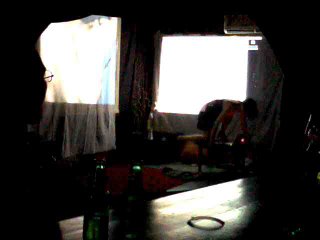Digital Rights Management technology does not stop media piracy. You get DRM by buying your movies, music, games and books through authorized channels. Most of the stuff you download from P2P networks or buy at open market in Valletta has already had the DRM cracked off of it.
To celebrate No DRM Day I recommend the following (partly borrowed from Boing-Boing):
 DefectiveByDesign's list of anti-DRM actions
DefectiveByDesign's list of anti-DRM actions
200 suggestions for activities you can participate in today and all year round to fight DRM.
DRMFree.org
a search-engine for DRM-free music for sale on the Internet, a single index of dozens of sites that sell or give away music without crippleware.
DRM.info
a site aimed at explaining DRM to the uninitiated -- what DRM is, why you should care, and what you can do about it. Tell your friends!
Who Killed TiVoToGo?
a murder-mystery from the Electronic Frontier Foundation that explains how even restricted services that let you get more out of your property are being axed by regulators and the entertainment industry (here's how to fight back).
Kembrew McLeod's guest-edited issue of the journal Cultural Studies
contains uproarious scholarly works on the copyfight.
Here are 10 things you can really do to help eliminate DRM (from the 200 things on DefectiveByDesign list mentioned above):
- Add this text to your email signature for the day.
- Post on a forum or message board that you subscribe to.
- Download and print this sign and hang one at your desk, the office water cooler, or in an elevator.
- Download and print this leaflet and give it to coworkers or others you see today, maybe even distribute them on your lunch hour or during your commute.
- Sign the Bono petition. We are getting ready to get his answer.
- Google bomb DRM by adding this link to your website or any web page you can edit.
- Digg the day of action
- Watch these videos on YouTube send them to friends and rate them.
- Photograph your actions and post them to Flickr tagged with "dayagainst drm defectivebydesign".


